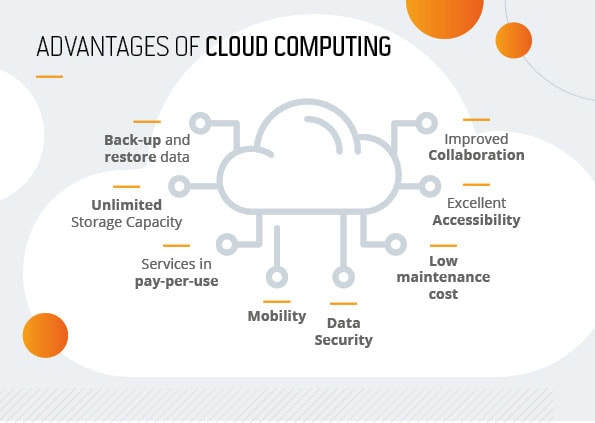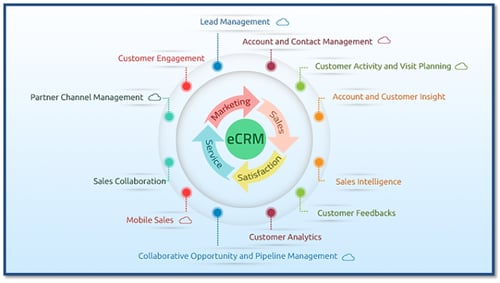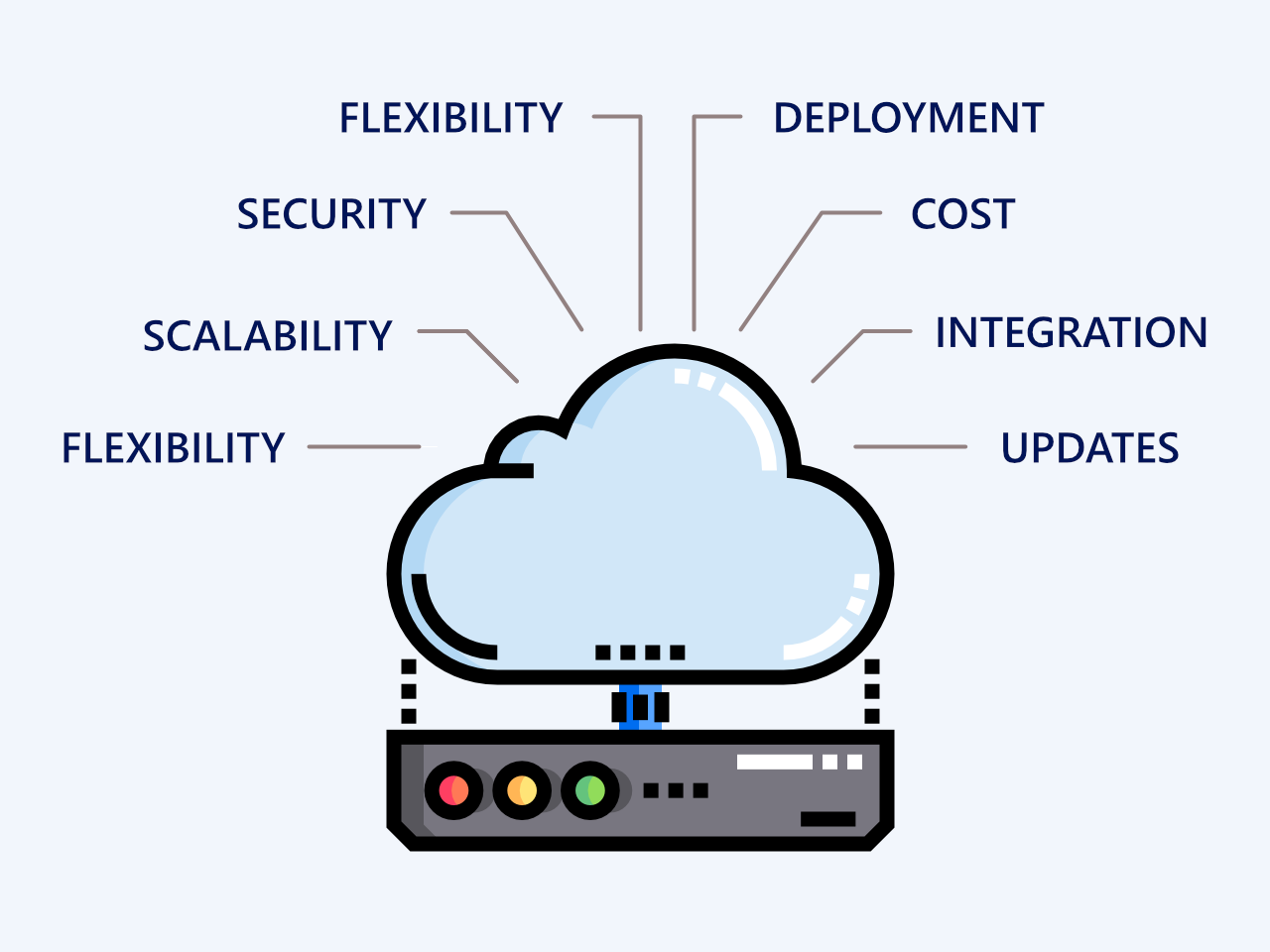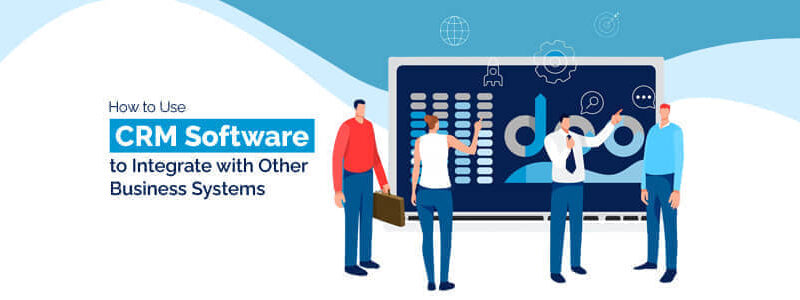In today’s fast-paced business environment, collaboration stands as a cornerstone for achieving organizational goals and driving innovation. cloud-based Customer Relationship Management (CRM) solutions have emerged as powerful tools to enhance collaboration across teams, irrespective of their geographical locations.
These platforms not only centralize customer data but also facilitate seamless communication and workflow automation, enabling teams to work together more efficiently.
By leveraging cloud-based CRM, businesses can ensure that all stakeholders have real-time access to crucial information, leading to more informed decision-making and improved customer satisfaction.
This article explores how cloud-based CRM solutions can transform the way teams collaborate, ultimately boosting productivity and fostering a more cohesive and effective work environment.
Enhance Collaboration with Cloud-Based CRM Solutions
Cloud-based CRM solutions have revolutionized the way teams collaborate and manage customer relationships. By providing a centralized platform accessible from anywhere, these solutions enable real-time data sharing, streamlined communication, and enhanced productivity.
This article explores how cloud-based CRM solutions can significantly improve collaboration among team members, leading to more efficient workflows and better customer service.
Centralized Data for Team Efficiency
One of the key benefits of cloud-based CRM solutions is the centralized storage of customer data. This ensures that all team members have access to the same, up-to-date information regardless of their location.
Centralized data eliminates the need for manual data synchronization and reduces the risk of errors, fostering a more efficient and cohesive team environment. With everyone on the same page, teams can make informed decisions quickly and provide consistent, high-quality service to customers.
Real-Time Communication and Collaboration
Cloud-based CRM solutions often come with built-in communication tools such as chat, messaging, and video conferencing. These features facilitate real-time communication and collaboration among team members, even when they are working remotely.
The ability to instantly share insights, discuss issues, and brainstorm solutions in real-time enhances team productivity and ensures that customer needs are addressed promptly and effectively. This real-time interaction also helps in building stronger relationships within the team and with customers.
Seamless Integration with Other Tools
Another significant advantage of cloud-based CRM solutions is their ability to integrate seamlessly with other business tools and applications. Whether it’s marketing automation, sales forecasting, or project management tools, these integrations allow teams to work more efficiently by automating repetitive tasks and providing a holistic view of customer interactions.
This integration ensures that all relevant data is consolidated in one place, making it easier for teams to collaborate and make data-driven decisions.
| Feature | Benefit |
|---|---|
| Centralized Data Storage | Ensures all team members have access to the same, up-to-date information. |
| Real-Time Communication Tools | Facilitates instant collaboration and decision-making. |
| Seamless Integration | Automates tasks and provides a comprehensive view of customer interactions. |
How does cloud computing enhance collaboration?

Cloud computing significantly enhances collaboration by providing a centralized platform for data storage, access, and sharing. This technology allows multiple users to work on the same project simultaneously, regardless of their geographical location.
By eliminating the need for physical hardware and local servers, cloud computing reduces the barriers to real-time collaboration, making it easier for teams to communicate, share files, and work together efficiently.
Cloud services offer version control, which ensures that everyone is working on the most up-to-date information, and they also provide robust security measures to protect sensitive data.
Real-Time File Sharing and Access
One of the primary ways cloud computing enhances collaboration is through real-time file sharing and access. Cloud platforms allow users to store and share documents, spreadsheets, and other files in a centralized location.
This means that team members can access and edit files simultaneously, leading to more dynamic and productive collaboration. For example:
- Google Drive enables users to collaborate on documents, spreadsheets, and presentations in real-time, with changes visible immediately to all participants.
- Dropbox Business provides secure file sharing and syncing capabilities, ensuring that all team members have the latest versions of files.
- Microsoft OneDrive for Business allows for real-time co-authoring of Office documents, making it easy for multiple users to work on the same file at the same time.
Version Control and Consistency
Cloud computing offers robust version control features that help maintain consistency and integrity in collaborative projects. These features ensure that all team members are working with the most recent and accurate information, reducing the risk of conflicts and errors. For instance:
- Google Drive automatically saves changes and keeps a history of all versions, allowing users to revert to previous versions if necessary.
- Dropbox Business includes version history and file recovery options, which help in managing changes and maintaining data accuracy.
- Microsoft OneDrive for Business provides version control for Office documents, enabling users to track changes and collaborate effectively.
Enhanced Communication and Integration
Cloud computing platforms often integrate with communication tools, making it easier for team members to stay in touch and collaborate seamlessly. These integrations can include chat, video conferencing, and project management tools, which enhance the overall collaboration experience. Examples include:
- Slack integrates with cloud storage solutions like Google Drive and Dropbox, allowing users to share files and collaborate directly within the chat platform.
- Microsoft Teams combines chat, meetings, and file sharing in one application, providing a comprehensive solution for team collaboration.
- Zoom integrates with various cloud-based tools, enabling users to share screens and collaborate on documents during video conferences.
What is the main advantage of a cloud-based CRM system?
The main advantage of a cloud-based CRM system is its accessibility and scalability. Unlike traditional on-premises CRM solutions, cloud-based systems can be accessed from anywhere with an internet connection, which facilitates real-time collaboration among team members.
This accessibility ensures that sales teams, customer service representatives, and other stakeholders can access up-to-date customer information at any time, from any device.
Additionally, cloud-based CRM systems are highly scalable, allowing businesses to quickly adapt to changing needs by adding or removing users and features as required. This flexibility is particularly beneficial for growing businesses that need to scale their operations efficiently without significant upfront investment in hardware or infrastructure.
Enhanced Collaboration and Communication
Cloud-based CRM systems enhance collaboration and communication within an organization. Teams can access and update customer data in real-time, ensuring that everyone is working with the most current information. This real-time access reduces the likelihood of miscommunication and ensures that customer interactions are consistent and personalized. For example:
- Real-time data updates allow all team members to see the latest customer interactions and feedback.
- Collaborative tools within the CRM platform enable team members to share insights and strategies.
- Integration with communication tools like email and messaging platforms streamlines communication and reduces the need for manual data entry.
Cost Efficiency and Reduced Maintenance
One of the key advantages of cloud-based CRM systems is their cost efficiency. These systems eliminate the need for expensive hardware and the associated maintenance costs. Instead, businesses pay a subscription fee, which is often more predictable and manageable. This model is particularly beneficial for small and medium-sized businesses that may not have the resources to manage and maintain their own servers. For instance:
- Subscription-based pricing models offer flexibility and scalability, allowing businesses to adjust costs based on their needs.
- Cloud providers handle all updates and maintenance, reducing the burden on internal IT teams.
- Lower upfront costs make it easier for businesses to adopt and implement CRM solutions without significant capital investment.
Scalability and Flexibility
Cloud-based CRM systems offer exceptional scalability and flexibility. As a business grows, it can easily add more users, storage, and features to meet its evolving needs. This scalability is achieved without the need for additional hardware or significant changes to the IT infrastructure. Furthermore, cloud-based systems can be configured to support various business processes and workflows, making them adaptable to different industry requirements. For example:
- Businesses can quickly add or remove users and features as needed, without the delay of procuring and installing new hardware.
- Cloud providers often offer a range of customizable modules and integrations to support specific business processes.
- Flexible deployment options allow businesses to choose the level of security and compliance that meets their regulatory requirements.
What are collaborative CRM systems?

Collaborative CRM systems, also known as collaboration Customer Relationship Management systems, are software solutions designed to enhance communication and coordination among different departments within an organization.
These systems facilitate the sharing of customer information across teams such as sales, marketing, and customer service.
By centralizing customer data, collaborative CRM systems ensure that all relevant team members have access to the most up-to-date and accurate information, leading to more efficient and effective customer interactions.
Benefits of Collaborative CRM Systems
Collaborative CRM systems offer several advantages that can significantly improve business operations:
- Improved Interdepartmental Communication: By providing a centralized platform for data sharing, these systems ensure that all departments are on the same page. This reduces the likelihood of miscommunication and enhances the coordination of efforts.
- Enhanced Customer Experience: With access to comprehensive customer data, team members can provide more personalized and timely service. This leads to higher customer satisfaction and loyalty.
- Increased Efficiency and Productivity: Automated workflows and integrated tools within collaborative CRM systems can streamline processes, reducing the time and effort required to manage customer interactions.
Key Features of Collaborative CRM Systems
Effective collaborative CRM systems come equipped with a range of features that support seamless teamwork and data sharing:
- Unified Customer Profiles: These systems aggregate data from various sources to create detailed and unified profiles for each customer, making it easier for team members to access and update relevant information.
- Workflows and Automation: Automated workflows help in assigning tasks, tracking progress, and ensuring that customer-related activities are handled promptly and efficiently.
- Integration Capabilities: Integration with other business tools and systems, such as email, social media, and e-commerce platforms, allows for a more comprehensive approach to customer management.
Challenges and Considerations in Implementing Collaborative CRM Systems
While collaborative CRM systems offer numerous benefits, there are also challenges and considerations to keep in mind during implementation:
- Data Privacy and Security: Ensuring that customer data is protected and compliant with regulatory requirements is crucial. This involves implementing robust security measures and training staff on data handling best practices.
- User Adoption: Encouraging all team members to use the system effectively can be challenging. Providing adequate training and support is essential to maximize the benefits of the CRM system.
- Customization and Scalability: The system should be flexible enough to meet the specific needs of the organization and scalable to accommodate future growth and changes in business operations.
What is CRM cloud solutions?

CRM cloud solutions, or Customer Relationship Management cloud solutions, are software applications hosted on the cloud that are designed to help businesses manage their interactions with customers, prospects, and partners.
These solutions provide a centralized platform for storing and managing customer data, automating sales processes, and enhancing customer service. By leveraging cloud technology, CRM solutions offer scalability, accessibility, and cost-efficiency, enabling businesses of all sizes to streamline their operations and improve customer satisfaction.
Advantages of CRM Cloud Solutions
CRM cloud solutions offer several key advantages over traditional on-premises CRM systems:
- Scalability: Cloud-based CRM systems can easily scale up or down to accommodate changes in business needs, allowing companies to add or reduce users and features as required without the need for additional hardware.
- Accessibility: With cloud CRM, users can access customer data and applications from anywhere with an internet connection, improving collaboration and productivity across different locations and devices.
- Cost-Efficiency: Cloud CRM solutions typically operate on a subscription model, eliminating the need for large upfront investments in hardware and software. This can significantly reduce IT costs and provide more predictable financial planning.
Key Features of CRM Cloud Solutions
CRM cloud solutions come equipped with a range of features that help businesses manage customer relationships more effectively:
- Contact Management: Centralized storage of customer contact information, interaction history, and communication preferences, ensuring that all relevant data is easily accessible and up-to-date.
- Sales Automation: Tools for managing leads, opportunities, and sales pipelines, including automated workflows, sales forecasting, and performance tracking, to streamline the sales process and enhance productivity.
- Customer Service Management: Features for handling customer inquiries, support tickets, and service requests, including self-service portals, case management, and knowledge bases, to improve customer satisfaction and retention.
Types of CRM Cloud Solutions
There are various types of CRM cloud solutions, each designed to meet specific business needs:
- Operational CRM: Focuses on automating and streamlining sales, marketing, and customer service processes to improve efficiency and effectiveness. Examples include sales force automation, marketing automation, and service automation tools.
- Analytical CRM: Employs data analytics and business intelligence tools to analyze customer data, identify trends, and provide insights for making informed business decisions. This type of CRM helps in understanding customer behavior and preferences.
- Collaborative CRM: Facilitates communication and collaboration between different departments and external partners to provide a more cohesive and consistent customer experience. It includes features such as social media integration, partner portals, and community management tools.
Frequently Asked Questions
What are the key benefits of using cloud-based CRM solutions for enhancing collaboration?
Cloud-based CRM solutions offer real-time data access, streamlined communication, and centralized customer information, enabling teams to collaborate more effectively. These platforms facilitate easy sharing of updates, insights, and customer interactions, which can significantly improve productivity and customer satisfaction.
How does cloud-based CRM improve remote team collaboration?
Cloud-based CRM systems provide remote teams with seamless access to the same customer data and tools, regardless of location. This ensures everyone is on the same page, enhances communication, and streamlines workflows. Features like shared calendars, task management, and real-time chat further support remote collaboration.
Can cloud-based CRM solutions integrate with other tools to enhance collaboration?
Yes, cloud-based CRM solutions can integrate with a variety of tools such as project management software, email clients, and communication platforms. These integrations enhance collaboration by centralizing data and workflows, reducing manual tasks, and improving overall team efficiency.
What are some best practices for implementing cloud-based CRM to improve collaboration?
Best practices include training staff on the new system, setting clear communication protocols, and regularly reviewing and updating processes. It’s also important to ensure data security and privacy, and to foster a culture of continuous improvement and feedback. Regularly check in with team members to identify any issues and make necessary adjustments.


